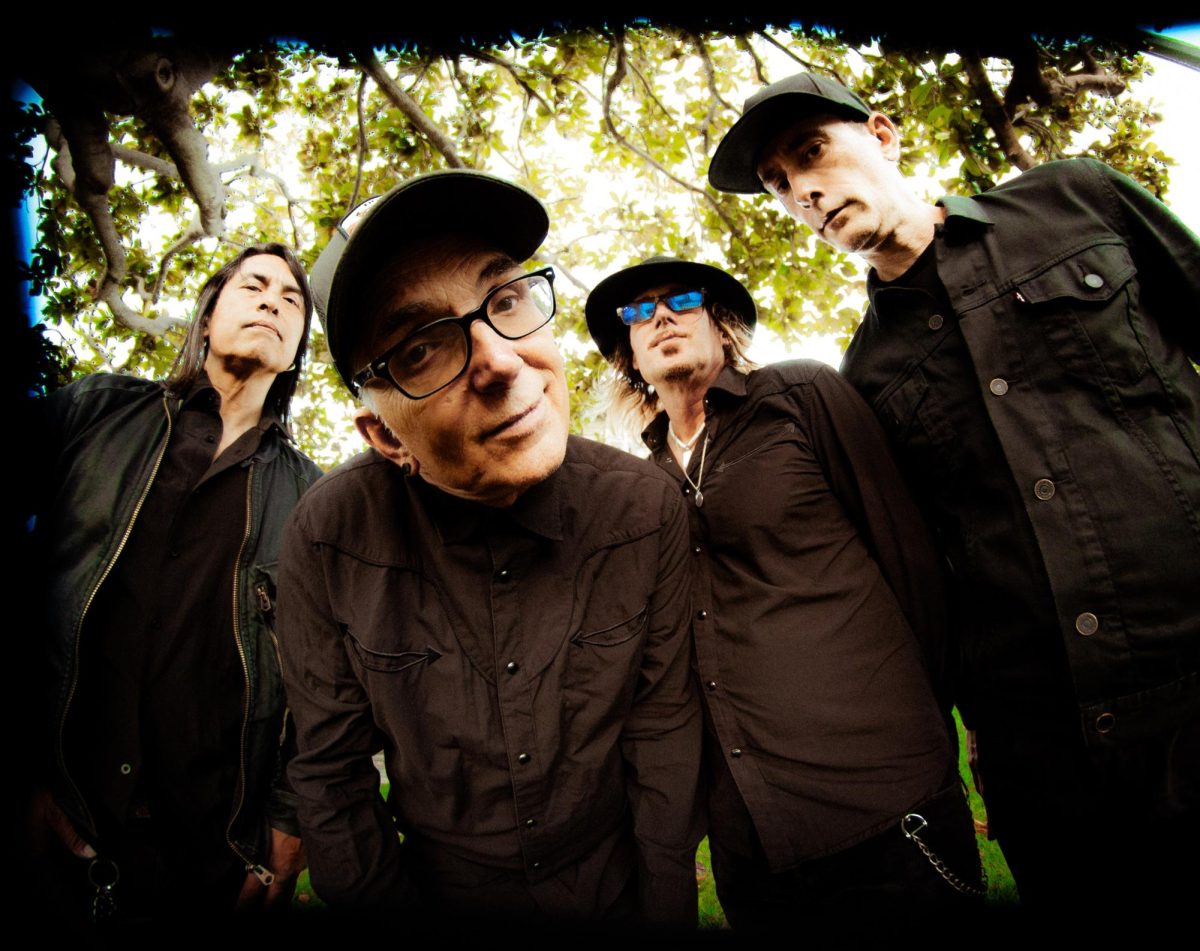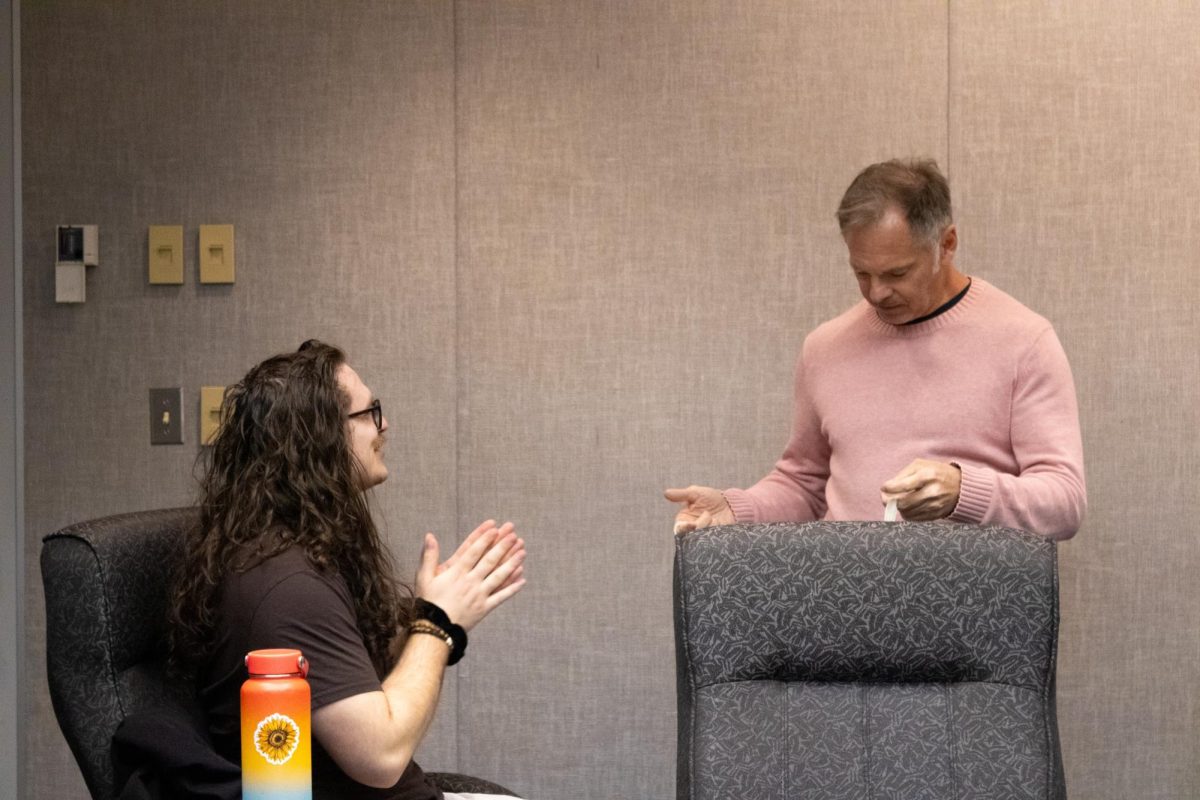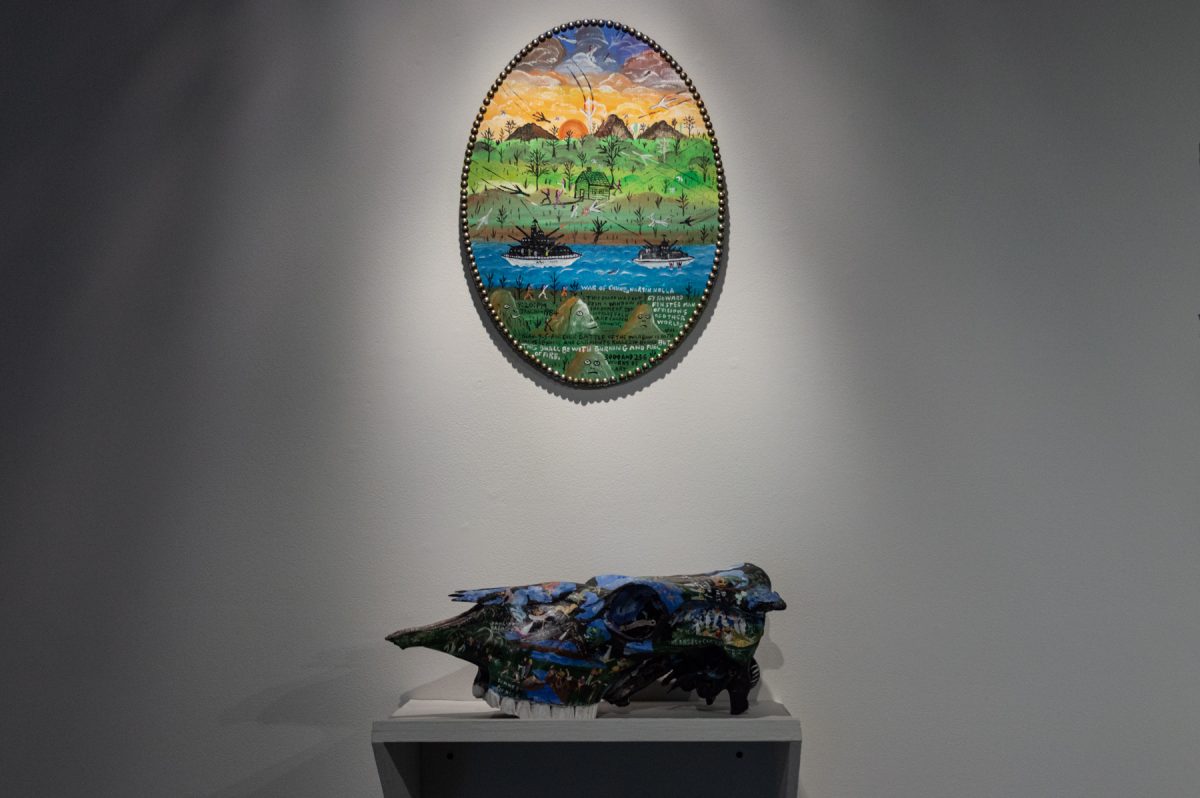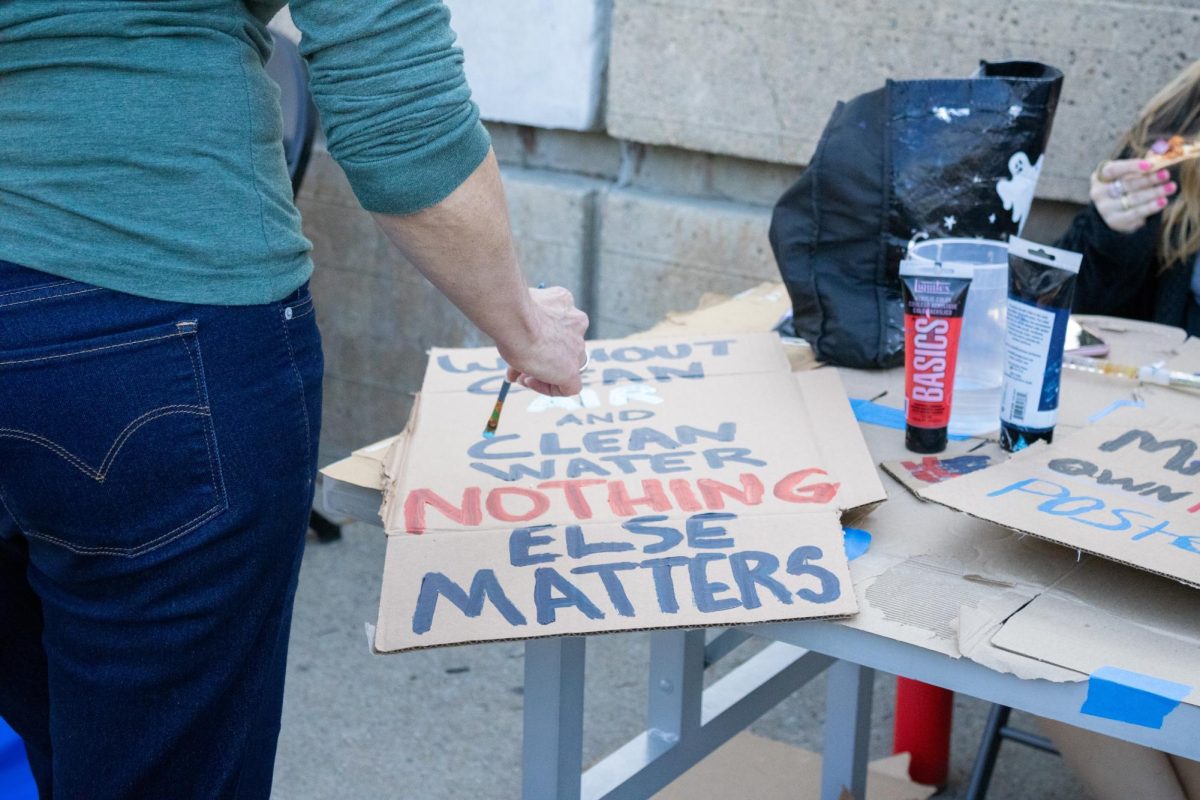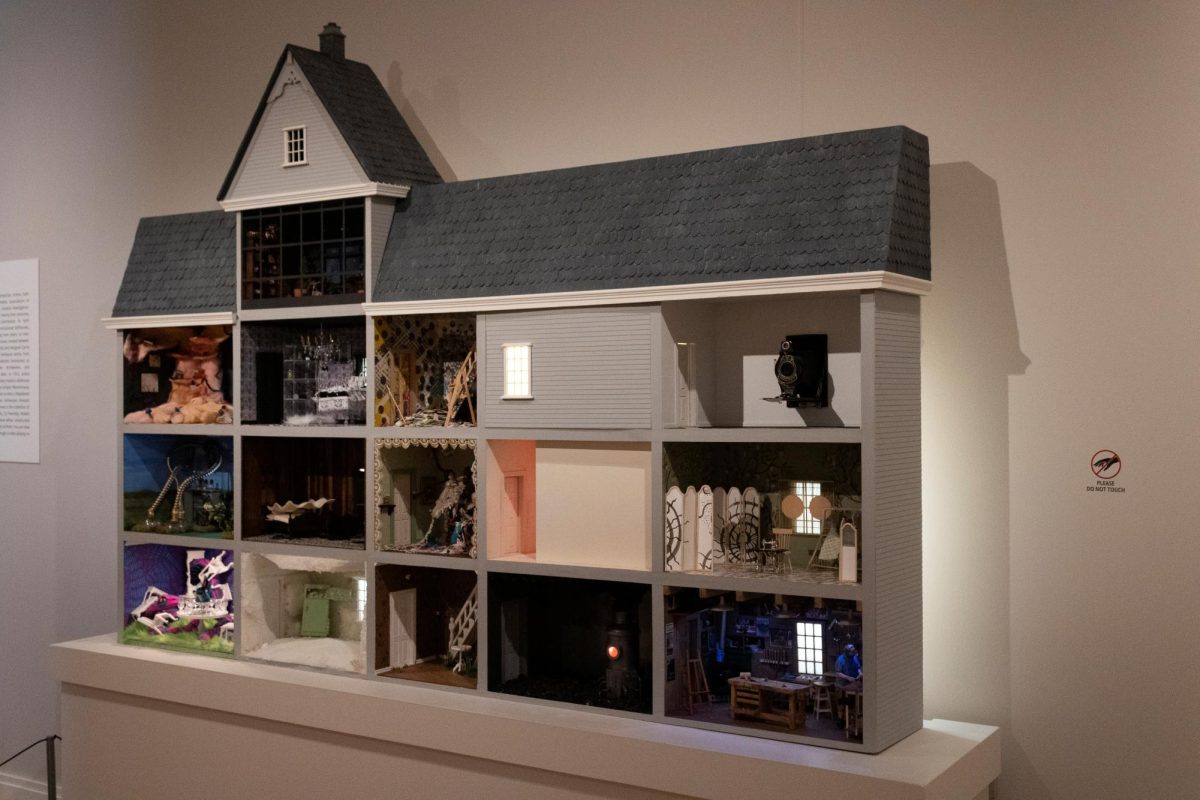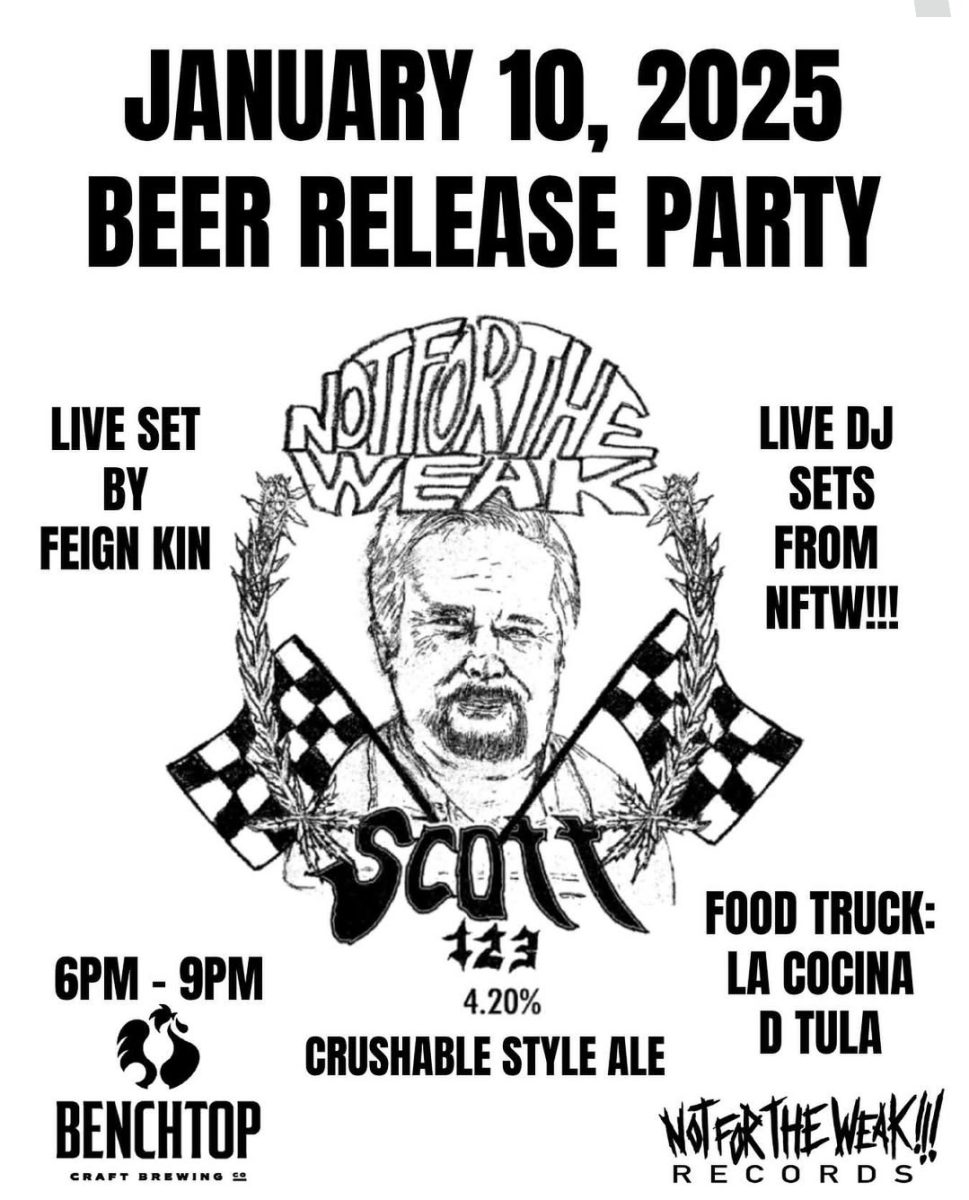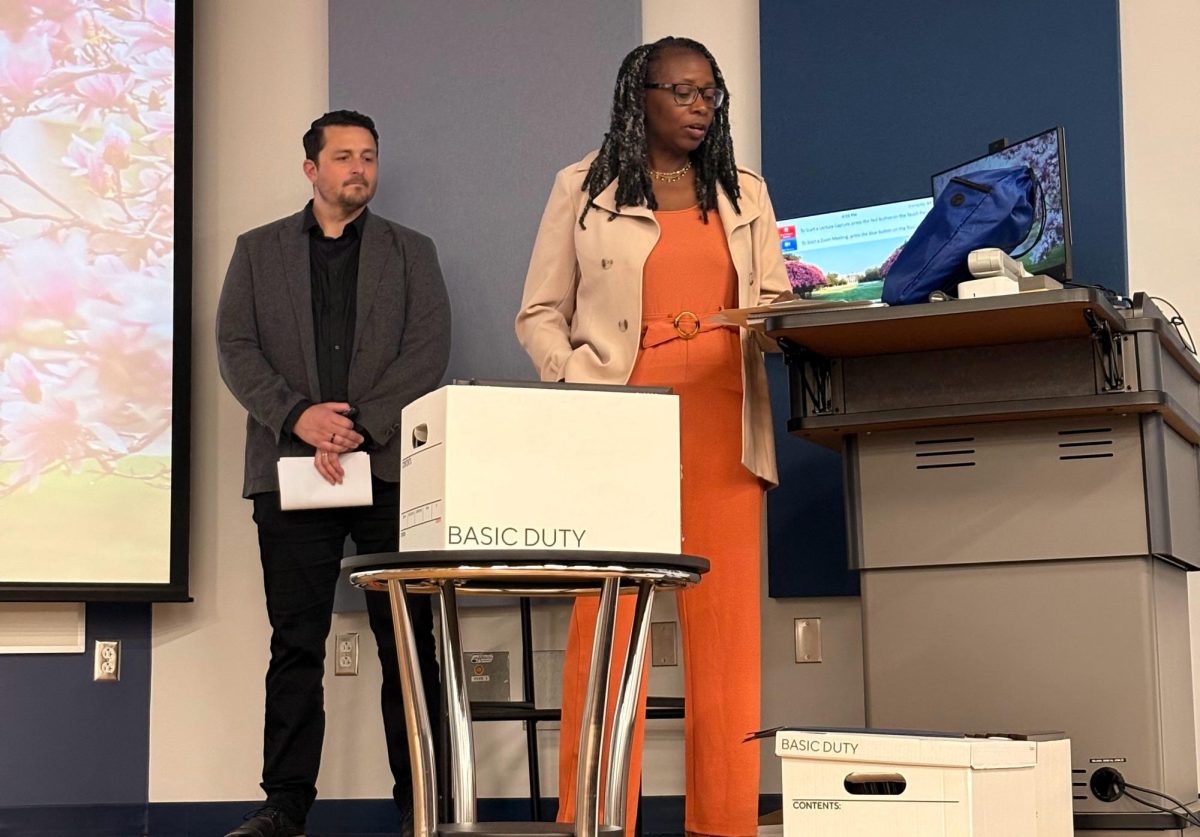Out of the seemingly endless list of rock bands that have released music in the 90s, it is absolutely imperative that any music fanatic bring up Everclear in the list of era-defining artists. Formed in Portland, Oregon by Art Alexakis, this band would go on to release what is arguably one of the most iconic and timeless albums of the decade, if not of all time … “Sparkle and Fade.” The album marked its 30-year anniversary on May 23 since its 1995 release and the band is currently on tour with two renowned bands from the same era, Local H and Sponge. One of their tour stops? The NorVa in the great old city of Norfolk on Oct. 17, 2025.
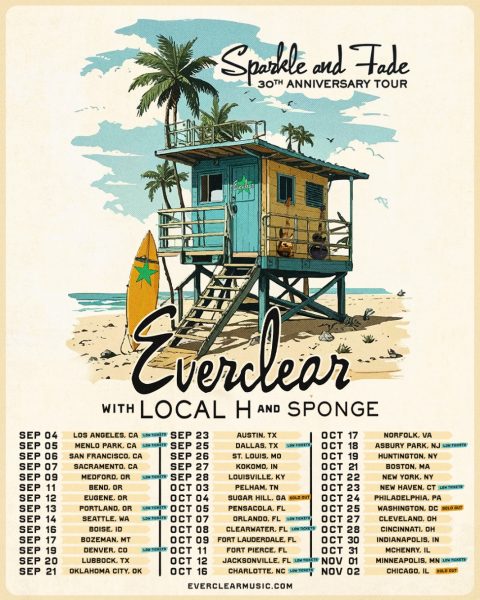
On a personal note, it was exciting to see such an impactful band come around to play an album that has undoubtedly reached a legendary status among music enthusiasts. In anticipation for their performance in Norfolk, one simply could not pass up the opportunity to interview the mastermind behind it all, Art Alexakis.
Already getting halfway through the tour. How have the shows been? How has the turnout been?
Art Alexakis: I think out of the 14 shows we’ve done, I think 10 or 11 of them, 10 have been sold out. The others are pretty close. It’s been phenomenal. And, you know, a good way of like, even back in the punk rock days when you’re printing T-shirts, posters, and flyers and stuff in people’s basements and stuff, to now where we have a company, Nacre and Rich. One of the barometers a band, any band can figure out is how they’re doing at shows, how their shows are going over, is how much merch they sell. And we have record numbers of merchandise being sold on the store. It’s kind of blowing us away. And the fact that no one’s leaving, and we’re doing a whole album with a lot of, like, you know, like, not hit songs that were just parts of that. But we’re doing the whole album, “Sparkle and Fade.” But we’re doing three songs off “Sparkle and Fade,” and then I’ll throw in a hit from “Afterglow” or from another record. You know what I mean? Just to break it up. It seems to flow, like we really got it flowing nicely right now.
30 years with the openers, Local H and Sponge…it really feels a perfect snapshot of that rock and roll sound that was in the 90s. It’s just timeless. What do you think makes that music so timeless?
AA: We all have opinions on it. My opinion is the fact that the majority of people making music in the 90s…we all grew up in the 70s so we grew up when what people call classic rock was actually happening. You know, the Beatles, Stones, Zeppelin, Motown…funk, hard rock, Kiss, Pink Floyd all that stuff. And then punk rock happened, and that changed my life, […] and so the music, I think, that was being made in the 90s is very classic, because of the influences from where it came from.There’s new bands coming up that are really exciting, but there’s a lot of like more commercial music that is like they’re not really looking at back where it all came from and taking it from there. They’re just looking at what the guy or gal next to them is doing. They’re trying to emulate that so it’s kind of a shallow gene pool of music. I hear that from a lot of younger people who come to our show … between the ages of like 15 and 30 … are really stoked about the 90s because they felt like that was their era of classic rock. I think not all 90s bands are doing well, but I think there are a lot of 90s bands that are doing well and I think people go through— younger people go through playlists and stuff and they find the bands they want to and I think because of the lyrics and the rawness of the music I think that it appeals to a certain type of people and…that’s why I think they’re coming out in droves.
You were at the LA College of Music and did the co-writing for the curriculum. Has your approach to songwriting, this sort of autobiographical approach, has that changed at all over the years? Have you fine-tuned it?
AA: Well, brother, you’re making the assumption that all my songs are autobiographical, so let me stop you there. But I am impressed that you did your due diligence about reading up on me and working for LAMC. But yeah, my songs are not autobiographical, I’d say a third of them are. “Father of Mine?” Absolutely. “I’ll Buy You a New Life?” Absolutely, and a bunch of other songs, but I’d say one third are autobiographical. Another third are songs like “Santa Monica or “Summerland” off “Sparkle and Fade” that are — where I’ll take things from my life, but I’ll build them. I’ll turn them into a composite character… I’ll write songs like those songs on every record that are just songs I just write. They’re just stories that come to my head. I’m a writer, and I can do that from a first-person narrative, which is storytelling, right? And you can’t tell where it’s coming from, and if people think all my songs are autobiographical then I’m doing my job as a writer. It’s called suspension of disbelief. So you know it does sound very personal and some of the songs are, but I don’t write just one way. I don’t. Some people just always come up with a riff melody and then put the words on it that fit it. And I write some songs like that, but I also write songs that start with just a melody. And then I’ll build the music around that melody. Or sometimes I’ll start with just words and I’ll write words out. I’ll write a story. And from that story, like a short story from that story, I’ll take lines out and I’ll create characters and stuff like that. The reason I do that as a songwriter, and that’s what I taught in my curriculum, was the fact that you don’t want every song to sound the same … That’s boring.
I know that there’s going to be a 30th anniversary record for this album.
AA: It’s done. It’s going to be out in about a month and a half.
Yeah, it’s exciting. There’s just one question that’s been in my head. I know there’s gonna be some unreleased songs, some demos. I was just curious: Is there a story to them? Have they been saved? Were they discovered? Will we see some stuff from your previous project, “Colorfinger?”
AA: Good question. Yes, to all of them. So, yes, well, Universal, we were going to do this on our own. We were just going to license the record, I was going to remaster it, try and get the original stuff from Capital Universe if I could. But before we went about that last year, we got an email from them saying, “Hey, we want to do this. And … will you make it the way you want to make it?” And I’m like, absolutely. So they let me into the vaults … so when the vinyl comes out it’s going to be the same color green that it was originally when it came off 30 years ago. But it’s 180 grams so it’s more “audiophile” so it sounds good, really good. Right? And then one album, one disc, is going to be “Sparkle and Fade Remastered,” so the mastering … so it’s the original mixes and just exactly how they are on the record with the way they go into each other and crossfade and all that, but it just has better EQ, better compression, because technology’s gotten better since we did that 30 years ago so … it just sounds better through modern technology, how people listen to music now. Now the other disc are the eight songs that you were referring to. A couple of them were demos of songs that ended up on “Sparkle and Fade.” There’s some outtakes that have changed a little bit … there are outtakes and songs that didn’t make the record. There’s one song that everyone, even the hardcore Everclear people, is freaking out on. It’s called “Rocket Tattoo,” and they’re like, “What is that one?” I’m not going to tell you. I actually do tell them it’s the original version of a song called “The Swing” that we recorded for “Sparkle and Fade,” but I didn’t put it on the record. And we ultimately put it on a soundtrack for a movie called “Scream 2,” the horror film. And that’s, for Everclear fans, that’s like the holy grail: that song, and this is like an earlier, much more punk rock version of it. The lyrics have changed, and the perspective of the lyrics have changed. So for sure, the hardcore Everclear fans, they’re kind of chomping at the bit there.
I know you mentioned technology getting better. In a previous interview, you were talking about how much fun you had recording using tape. When recording “Sparkle and Fade,” you increased the tempo a bit and then you had to re-record vocals. Do you think that sort of idea would have come to you if … you were making this album from scratch in this day and age or did that technology back then force you to think outside of the box?
AA: Yes. The changing technology would make you. Back then, you had to think outside the box. So there was no tuning. There’s a thing called autotune. You know what it is. You hear it. People use it as an effect now. You know, like when you listen to hip-hop or R&B, or even country music. I hear auto-tune in rock music and you’re auto-tuning all the time. Instead of using it as a tool, they’d like to use it as an effect. There was none of that. We were recording to two inch 24-track tape, and carbon tape. You can do things that you can do with digital but like … if you just record very loudly, it’s just a natural tape compression so it sounds that way when you listen to music then you listen to music now. To be fair, the technology now is pretty amazing. It’s hard to tell the difference, but I think it’s harder all the time to get better at it. That being said, back then, if you wanted to tune something, you had to use maybe a little bit of a delay. And you didn’t do it. You would just keep getting takes till you got it right so you’d have to think differently. When it comes to recording now, I kind of go about things the same way. I try to get perfect before moving on so we don’t have to tune it. But I’m kind of a dinosaur when it comes to stuff like that.
I know there’s been a sudden interest or a rising interest in analog. Cassettes are making a huge comeback.
AA: Records have always been steadily climbing in popularity. They outsell CDs now, I think, five to one. It’s incredible.
Do you think it just sounds more organic than electronic could ever really approach?
AA: It does. It sounds better if you have a system that can bring out the aspects of it. But I think more than that, it’s exciting to have something that you can hold in your hands, you know? That you can open up at home and look at. I remember when I was a kid, you know, not having enough money to buy a record. When I finally got a record, it was a big deal. That’s all I was doing for the next two weeks, right? I remember what they smell like, when you open the records, and I read everything that was on there. I even memorized the address for Warner Brothers in New York, in the fine print. But it was more of an experience, and I think a lot of people are getting that now. It’s awesome to look on your wall and see a couple of rows of records that mean a lot to you that are actual things that you can go pick up and hold. I think that that’s something that goes way back in our DNA, the actual ownership, just being present with something that you’re holding in your hands, that isn’t just a thing. There’s ideas and creativity and magic in that thing once you take it out, right? Once you put the needle down on the vinyl. That used to be so exciting to me with the new album, putting it on that first song and just going for the ride. I think people are starting to get into that, thinking of albums as opposed to just single songs, and how all the songs work together on an album. That was always important to me.
I know you hinted that you’re going to start working on a new album for Everclear. I recall that in your solo project you also mentioned how you were pushing yourself with trying new things, the way you were recording and writing. What is your main inspiration for writing nowadays? What’s been the driving force behind your creativity?
AA: I mean lyrically, because musically I’m just always driven… To be honest with you, I think you got what I was talking about on the solo record… I wasn’t trying to deal with a different perspective, I was just trying to record everything by myself. All the vocals, all the drums, and I’m a horrible drummer, especially with my MS, I can’t use my right foot so I have to figure out a different way of doing it. So maybe that’s what you’re thinking of. I’d have to do the kick drum with my hand, right? And then record the snare. But with this album, we’re doing it as a band like we always have. I write the songs and arrange them. I want the guys to bring their creativity into their parts and stuff as well, and that’s not going to change.
So is there a message you have for the fans before we close out?
AA: Come early. Come early and see all the bands. I mean, Sponge is amazing. Local H is amazing. This is an old school rock show. All of these bands, all of us, we don’t use tuning. We don’t use tracks. We don’t use any of that crap. This is real rock and roll and it’s exciting.
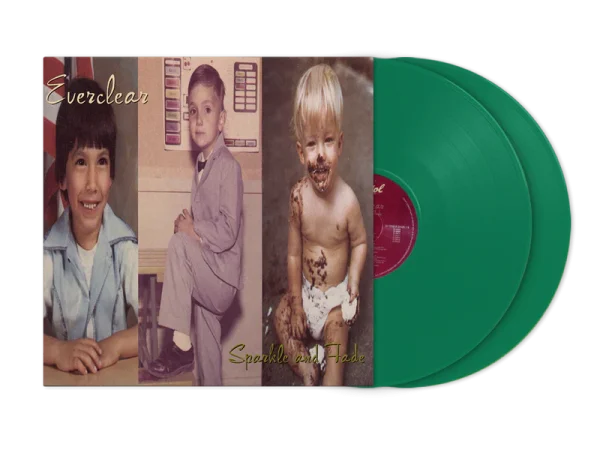
The 30th Anniversary of Everclear’s “Sparkle and Fade” will drop on Oct. 31. The new drop will feature two vinyl records in translucent Kelly Green. One record, as mentioned in the interview, will contain the remastered album “Sparkle and Fade” and the second record will feature bonus and unreleased tracks. The cost of the record runs at $54 right now off the Capitol Records store. If you need to give yourself a Halloween gift, then a remastered version of a quintessential 90s album is a great one to get.
An old school rock show is the perfect description for this upcoming concert. Be sure to check out The NorVa’s website for tickets and showtimes for Everclear’s concert. You can find the link here. Local H, hailing from Zion, Illinois, is widely considered to be a hardcore-adjacent band. Sponge, hailing from Detroit, Michigan, carries a distinct sound. In all sincerity, the openers carry influences from a wide variety of genres and both bands’ music sonically emit a unique flavor of rock music, much like the headliner. This lineup is nothing short of a 90s time capsule.


